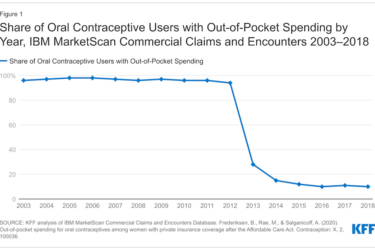
Health plans had good results last year on getting more children to have their body mass index (BMI) measured and get referrals for nutrition counseling, NCQA reported.
By showing trends in how managed care plans deliver care, this annual report is a rich source of data for health care journalists. The 206-page report is available as a pdf from NCQA. The latest report is based on 2012 data from NCQA’s Healthcare Effectiveness Data and Information Set. HEDIS is a performance improvement tool that health plans use to report quality scores to their employer clients.
Last year, NCQA collected HEDIS date from 1,151 health plans, a 9 percent increase over the 1,057 plans that participated in 2011, NCQA reported. HEDIS scores covered a record 136 million people, or 43 percent of Americans, David Pittman wrote in an article for MedPage Today.
Here are highlights from the report:
- The proportion of patients diagnosed as chemically dependent who got timely treatment has declined dramatically over several years, NCQA reported, adding that the drop has been greatest in Medicare plans, NCQA reported.
- No progress was made on limiting the overuse of antibiotics, a troubling result given that it came one month after the federal Centers for Disease Control and Prevention warned about illnesses and deaths linked to antibiotic-resistant bacteria, as Rachel Landon reported in Modern Healthcare.
- Childhood immunization results were mixed, Landon added. More children enrolled in Medicaid were immunized against influenza and rotavirus but vaccination rates among children in commercial plans have not returned to the highest levels reported in 2008, she wrote.
- Patients’ experience of care in Medicaid HMOs improved, the report showed, a fact that NCQA President Margaret O’Kane attributed to federal and state efforts to focus on quality and pay for performance, as Mary Mosquera reported in Healthcare Payer News.
But this result on patient experience is contrary to a report by Kaiser Health News in July in which writer Jenni Bergal reported that patients in managed Medicaid plans complained of being denied treatment or forced to travel long distances to find in-network doctors or hospitals, advocates for the mentally ill argued that the care system for these patients had deteriorated, and hospitals and doctors said health plans denied or delayed payments. In August, Bergal wrote about how she reported this story for AHCJ.









